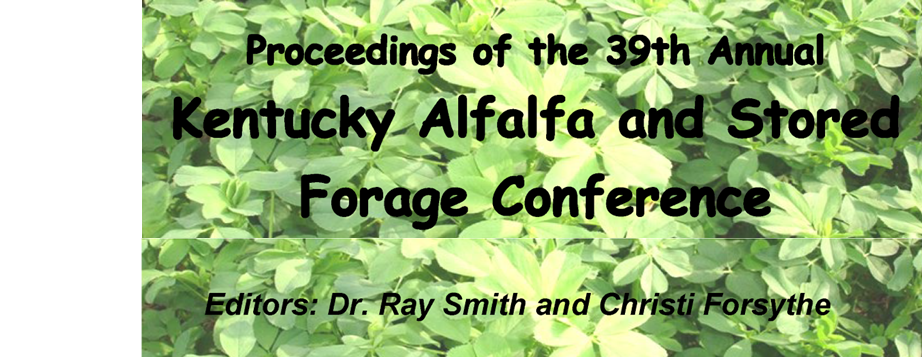Start Date
2-20-2020 9:00 AM
Description
Start with a soil test, even if soil testing is not a perfect way to identify nutrient needs. There are no one-size-fits-all formulas for starting a field of alfalfa – every field is ‘fertility unique’. Your prior knowledge of the field will cause you to make your initial soil test either well ahead of, or rather closer to, alfalfa seeding. The major driver of the timing of the initial soil test is soil acidity. If field soil acidity is suspected, soil test well ahead of seeding – 6 to 12 months ahead. Lime takes time to more thoroughly neutralize higher amounts of soil acidity (soil pH < 5.8). Otherwise, make the soil test 3 to 6 months ahead of seeding. UK lime and fertilizer rate recommendations are intended to maximize lime and fertilizer value to the alfalfa grower – and are nuanced (especially in the splitting of the high rates of phosphate (P2O5) and potash (K2O) associated with low testing fields.
Included in
Getting the Full Benefit of Your Lime/Fertilizer Dollar
Start with a soil test, even if soil testing is not a perfect way to identify nutrient needs. There are no one-size-fits-all formulas for starting a field of alfalfa – every field is ‘fertility unique’. Your prior knowledge of the field will cause you to make your initial soil test either well ahead of, or rather closer to, alfalfa seeding. The major driver of the timing of the initial soil test is soil acidity. If field soil acidity is suspected, soil test well ahead of seeding – 6 to 12 months ahead. Lime takes time to more thoroughly neutralize higher amounts of soil acidity (soil pH < 5.8). Otherwise, make the soil test 3 to 6 months ahead of seeding. UK lime and fertilizer rate recommendations are intended to maximize lime and fertilizer value to the alfalfa grower – and are nuanced (especially in the splitting of the high rates of phosphate (P2O5) and potash (K2O) associated with low testing fields.


Speaker's Bio
John Grove, Ph.D. is currently the Director of the Research and Education Center at Princeton and a Professor in the Department of Plant and Soil Sciences at the University of Kentucky. His areas of interest include soil science, soil fertility, soil management, and plant nutrition in plant production systems. Dr. Grove has numerous publications on topics ranging from soil mineralogy, soil aggregates, and soil properties. He has been recognized by the UK Alumni Association for the Great Teacher Award. He has had a tremendous impact on soil science education through the training of over a thousand undergraduate and graduate students during his career. Dr. Grove earned his Ph.D.in Agronomy from the University of Georgia.